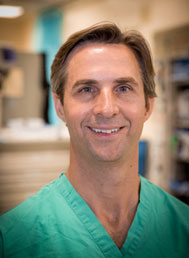By: Chwen-Yuen Angie Chen, MD, FACP, FASAM, Communications Committee Chair

On February 15, 2023 Dr. Caravella McCuistian, PhD presented her findings on the implementation of AB 541 Tobacco Treatment legislation, at the *UCSF Drug Use Research Group meeting (see below for more information on DURG). In attendance were CSAM members Cathy MacDonald, MD (Program Consultant Lifelong Tobacco Treatment Training Program Oakland, CA) and Chwen-Yuen Angie Chen, MD who were instrumental in initiating AB541: https://bit.ly/43cpS0l
Here is a synopsis of Dr. McCuistian‘s presentation:
“California has prioritized smoking cessation among people who use substances through the Tobacco-Free for Recovery Initiative, which includes an intervention aimed at supporting substance use disorder treatment programs in implementing tobacco-free grounds. Dr. McCuistian led an examination of changes in client smoking prevalence, tobacco use behaviors, and receipt of cessation services among the first seven programs participating in the initiative. Program clients completed cross-sectional surveys at the start of the intervention (baseline: n = 249), at an interim timepoint post-baseline (interim: n = 275), and at the end of the intervention 15 months later (post-intervention: n = 219). Over the course of the initiative, 5 of the 7 programs implemented tobacco free grounds. Results indicated that client smoking prevalence decreased from 54.2% to 26.6% from pre to post intervention. Current smokers and those who quit while in treatment also reported an increase in NRT/pharmacotherapy (11.9% vs. 25.2%) from pre to post intervention. These data suggest that an intervention to promote tobacco-free grounds implemented in residential SUD treatment programs was associated with a significant reduction in client smoking and an increase in NRT/pharmacotherapy. These findings directly supported the enactment of California AB 541, which now requires all California substance use treatment programs to assess and treat smoking among patients in these programs. The Tobacco Free for Recovery Initiative serves as a model for how substance use treatment programs may adhere to requirements of AB 541 while addressing smoking prevalence within their programs.”
Here are two resources for additional information:
McCuistian, C., Kapiteni, K., Le, T., Safier, J., Delucchi, K., & Guydish, J. (2022). Reducing tobacco use in substance use treatment: An intervention to promote tobacco-free grounds. Journal of substance abuse treatment, 135, 108640, 1-8.
https://doi.org/10.1016/j.jsat.2021.108640
Campbell, B. K., Le, T., McCuistian, C., Hosakote, S., Kapiteni, K., & Guydish, J. (2022). Implementing tobacco-free policy in residential substance use disorders treatment: Practice changes among staff. Drug and Alcohol Dependence Reports, 2, 100033. https://doi.org/10.1016/j.dadr.2022.100033, 1-8.
*The UCSF Drug Use Research Group (DURG) is a city-wide seminar attended by faculty, postdoctoral fellows, graduate students, and other investigators with a focus on and for persons who use drugs. Started in 2005 after a friendly debate between an epidemiologist and anthropologist on the merits of quantitative versus qualitative research methods, the DURG monthly seminars provide a community platform for new and established investigators to present their work, formulate research questions, and prepare for grant applications, conferences, and publications in a supportive environment. The seminar has been successful in cultivating new collaborations and mentorship and in sustaining interdisciplinary and interprofessional dialogue between those engaged in basic sciences, epidemiology, clinical research, and qualitative methods.






